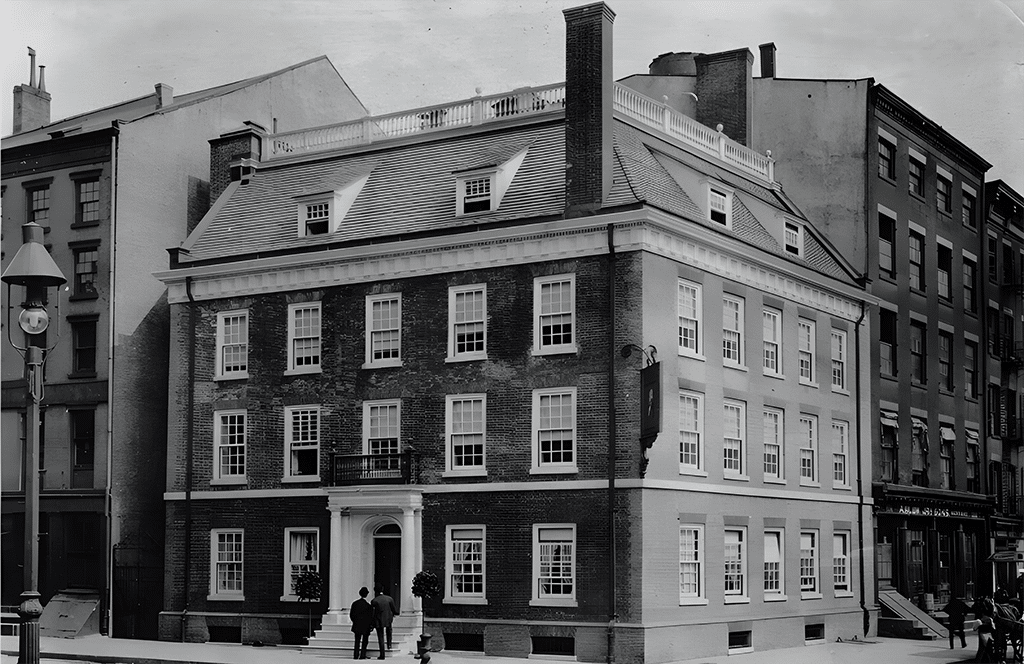Excerpts from: Americanism Redux: May 16, on the journey to the American Founding, 250 years ago today, in 1774
The fact of the Boston Port Act has hit land, rather like a bomb. It’s gone off in Boston and the shock waves spread out from there. The port will be closed beginning June 1 if compensation for the destroyed East India Company tea is not forthcoming. Colonists outraged by the law are starting to meet. A “Committee of Fifty-One” organizes in New York City. The shock wave will hit communities that are dealing with important issues. In the colony of Rhode Island, Moses Brown attempts to persuade legislators to adopt a bill banning the foreign slave trade. In Alexandria, colony of Virginia, local leaders have identified key steps to help improve life in the town while in the “Illinois country” a group of investors have selected a trio of men to press their case for British imperial support and recognition.
Across the ocean in Europe, London bookseller Thomas Longman worries over the impact of the new law on his friends and customers in Boston. A new monarch ascends to the throne of France; Louis XVI succeeds his newly deceased grandfather Louis XV. The tensions across France have done nothing but grow—stark contrasts exist between the clergy, nobility, and everyone else in the country and it’s an unanswered question whether the next 29-year old king will help guide the French people into a calmer and more peaceful era.
Americanism Redux, a series by historian author, Dr. Dan Miller, explores what Americanism meant 250 years ago and its significance for America today. Visit Dr Dan Miller’s website>

Reference: The Remnant Trust Collection
The Boston Circular is a document crafted by Boston’s leading colonial-rights supporters. The authors of the Circular declare that the port town is now in the center of “the common cause”, implying in strong terms that the community’s fate rests on whether or not other colonists and colonies come to its aid. The Circular reveals a position of Boston as the focal point of colonial resistance, a trend evident in the 1764 publication of James Otis’s “The Rights of the British Colonies Asserted and Proved” (#0266). With the announcement of the Boston Port Act in 1774, Boston’s significance in the colonial rights movement enters its tenth year.
View The Remnant Trust “Wisdom of the Ages Athenaeum PDF for reference>




